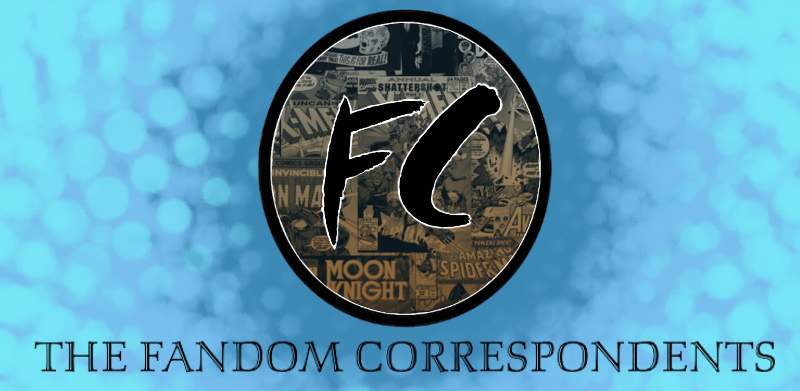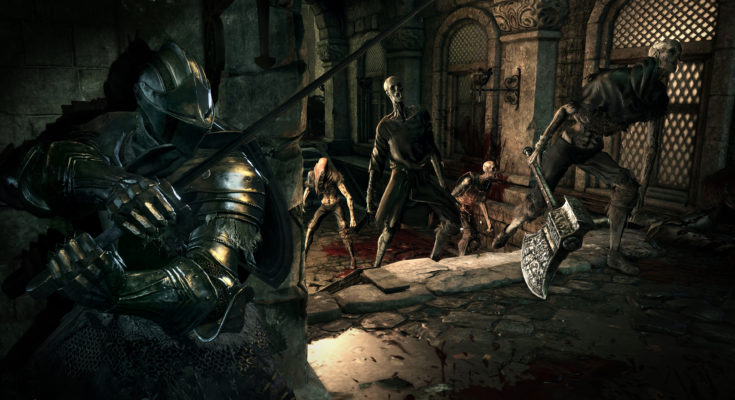You’ve probably played them, and if you haven’t played them, then you’ve probably seen them referenced by a video game journalist who lacks any real skill in describing their own craft. Yes, I’m talking about the most derivation-spawning game series since Legend of Zelda, Dark Souls. Dark Souls (and by extension, Bloodborne) is the game series that put video game developer FromSoftware on the cultural map. The spiritual successor to a little-known PS3 game Demon’s Souls, Dark Souls first premiered in 2011 and kicked off a cultural shift in the video game industry that embraced a model of higher difficulty, less obvious direction, and heightened player agency. Dark Souls quickly became known as “soul-crushingly hard,” but people who stuck with the game discovered it to be so much more than a YouTube rage compilation many entertainers treated it as. The SoulsBorne games evoke a much more conscious approach to gaming that has left a huge impression on the last decade of the world’s biggest entertainment industry.
As a massive fan of FromSoftware games, I believe three things really separate SoulsBorne from most other modern video games. First, and probably the thing most people think of when they think of these games, is the difficulty. I’m not about to sit here and tell you that SoulsBorne games “aren’t that hard, just git gud.” They’re quite challenging, especially if you’re jumping into them for the very first time. There’s little combat tutorial, and they have the unique quality of literally anything being able to kill you at anytime if you’re not careful. However, despite the difficulty curve being so steep, anyone who has stuck with a game long enough will tell you that there is a moment where it clicks, and you start to learn. You’ll start recognizing traps, you’ll pick up on enemy patterns quicker, and the balance between dodging, parrying, and attacking will come much more naturally. While EA’s advertisement of “feelings of accomplishment” was more BS than a liberal arts degree, it’s honestly a good term for the satisfaction you feel in SoulsBorne games: after conquering a tough boss or fully exploring a new area, you feel powerful and badass, mostly because you can see how far you’ve come from the initial struggle. Fighting bosses from SoulsBorne games is one of the few times playing a video game that I feel comfortable saying, “OK, I died, and it was completely my fault; what can I learn?” There are plenty of people who don’t like challenging games, and it is completely their prerogative to enjoy this wonderful hobby however they like to. But if you are not directly opposed to more difficulty than usual, I would encourage everyone to try a SoulsBorne game for at least a good 8-10 hours to see if the reward is worth the trial. Sure, the challenge has spawned some toxic fanboys, but it has also resulted in some of the most intense and rewarding sequences of gaming I’ve ever experienced.
The second thing that separates SoulsBorne is the storytelling, or in some ways, the lack thereof. In an era where prolonged cutscenes and cinematic storytelling was characteristic of most big game titles, FromSoftware instead embraced a more understated yet interactive method of weaving their narratives. You can count on one hand the number of cutscenes in most SoulsBorne games, and most of those simply serve as boss introductions. Instead of taking the player out of the game to tell a story through cinematic set pieces and extended dialogue, FromSoftware makes you work for the narrative you get. You want to know what Solaire’s deal is? Well, spend some time with him. Fulfill his quests, deplete his dialogue options, and maybe you’ll glean something about him and his Sun religion. Wanna know what’s going on with the general Dark Souls 2 setting? Read some item descriptions and see if you can piece together what happened in good ole Drangleic. The story in SoulsBorne games rewards the curious player, and the fact that you have to actively seek it out while still interacting with the game itself makes it feel so much more immersive than having gameplay be ripped from your hands every 20 seconds for a cutscene to tell you something edgy about a character’s past (looking at you, Uncharted). The kicker is that the games are extremely well-written! Tons of gaming channels and video essays have been devoted to exploring the lore of Dark Souls, Bloodborne, and Sekiro because they are legitimately fascinating stories that reward curiosity and study. Is it always clear what the hell is happening? Not always, but that’s the beauty of the storytelling: if you decide it’s not worth the effort, you can still enjoy the gameplay without being forced to learn about a story that doesn’t really matter to you.
Finally, SoulsBorne games always standout to me because of their multiplayer component. Rather than traditional multiplayer that sets you up with local or online allies you can speak to and coordinate with, there is no natural voice chat option in Dark Souls and Bloodborne. For the most part, you are summoning rando’s to your game to help you with no direct plan or communication, and this system is surprisingly enjoyable! Sure, coordinating finely-crafted battle plans can be rewarding, but there is something uniquely satisfying and intimate about taking down a boss with the help of a silent, foreign partner. Dark Souls really changed people’s perceptions of what multiplayer really means, and the combined potential for both friendly and antagonistic players to pop up in your game really makes the world feel that much more dangerous and engaging. Multiplayer is also optional for those who want to beat the game independently, and if you’re just not in the mood to play with others but want some help with a boss, each boss offers NPC ally summons as well. Honestly, in a world full of vitriolic dialogue and rhetoric, maybe more silent cooperation is just what we need.
But has the influence of Dark Souls gone too far as of late? The title popularized a return to more challenging difficulty in gaming, and while that has created some terrific experiences, it has also served as a new formula that, though intended as a unique experience, now has several studios trying to shoehorn higher difficulty into every game that they can. This has progressed to the point that Dark Souls is more of a derivative adjective rather than a game, as evidenced by several games journalist describing completely different products as “the Dark Souls of X.” Who knew that Crash Bandicoot, a game that came out about 15 years prior to Dark Souls, was actually the Dark Souls of PS1 platformers. The SoulsBorne influence is evident in gameplay as well, most evident in the recent Jedi: Fallen Order title. Killing enemies gives you experience, but if you die before a checkpoint, better kiss that experience goodbye unless you can recover it on your next life. When it comes to combat, I think of games as falling somewhere between two categories: fast-paced, combo-centric action like Devil May Cry, or patient, intentional combat like Dark Souls. Despite the success of Devil May Cry 5, we are repeatedly seeing people approach gameplay with the patience and slow pace of Dark Souls more and more. While this is not necessarily a bad thing, it’d be nice to see more of the spectrum explored rather than studios going, “Well, FromSoft did it, and it worked out well for them.” I love Dark Souls, but even I recognize that not every game under the sun benefits from its style or mechanics. It was supposed to be a unique experience, but we may very well see the franchise influencing games for years to come. This is certainly the Dark Souls of gaming eras.

